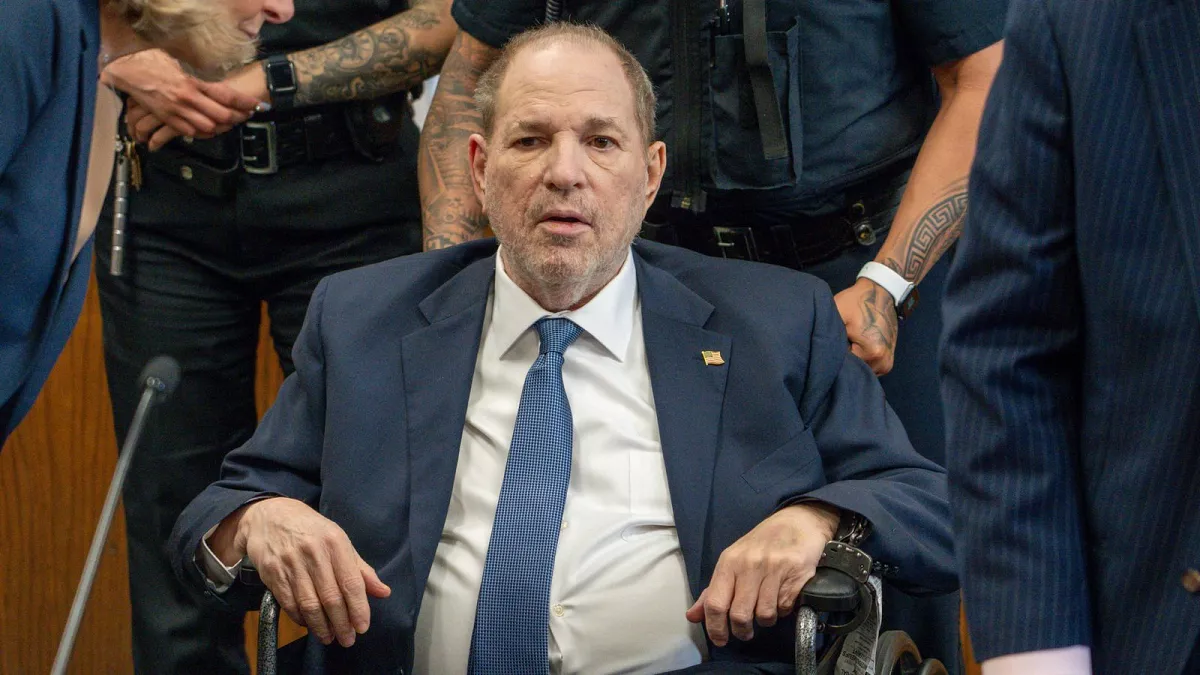
After his conviction for rape was overturned, Harvey Weinstein is scheduled to face a new trial in New York
Harvey Weinstein’s defense lawyer is optimistic about the outcome of Weinstein’s retrial, stating that he will undoubtedly be declared “not guilty.”
The Manhattan District Attorney’s Office declared on Wednesday that Harvey Weinstein, a former Hollywood producer, will be retried in New York after the state’s highest court last week overturned his 2020 rape conviction.
Weinstein made a court appearance before Judge Curtis Farber more than four years after his conviction, which at the time was heralded as a turning point for the #MeToo movement. He was dressed in a wheelchair and a black suit. During this movement, hundreds of individuals in the media, entertainment, and political spheres were accused of sexual assault by women.
“There was nothing consensual about this conduct,” prosecutor Nicole Blumberg declared, reiterating their plan to retry the case.
The 72-year-old Weinstein was incarcerated in an upstate jail in Rome, New York, for 23 years. But according to his spokeswoman, Juda Engelmayer, he was moved to Bellevue Hospital in Manhattan as per the directive from last week.
Without establishing a specific date, Judge Farber ordered Weinstein back into custody while expressing his hope to hold a fresh trial following the Labor Day vacation. September 2 is Labor Day.
Weinstein did not say anything at the court session, and his lawyer Arthur Aidala did not object to his client’s remand. “We’re very confident that if he goes to trial, the only words we’ll hear at the end of the trial are ‘not guilty,'” Aidala said, expressing relief at being back in court.
Among other accusations, Weinstein is charged with raping aspiring actress Jessica Mann in 2013 and sexually abusing former production assistant Miriam Haley in 2006. In 2020, he was found guilty of first-degree sexual assault and third-degree rape; however, he was found not guilty of any other offenses.
The New York Court of Appeals said last week that trial judge James Burke erred in permitting three women to testify regarding alleged sexual assaults by Weinstein that were not related to the charges against him. The court decided that his right to a fair trial had been violated by this testimony of “prior bad acts.”
Weinstein received a separate 16-year term after a California rape trial. Interestingly, California law allows prosecutors more leeway than New York law to bring evidence of “prior bad acts”; the two sentences cannot run simultaneously.
A new judge would preside over any retrial in New York since Judge Burke was no longer on the bench.
All Categories
Recent Posts
Tags
+13162306000
zoneyetu@yahoo.com


